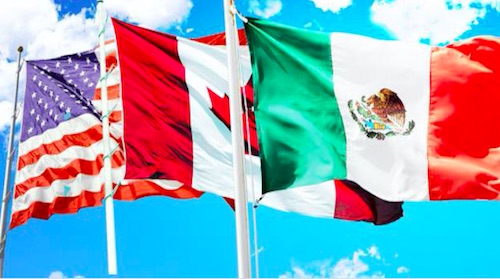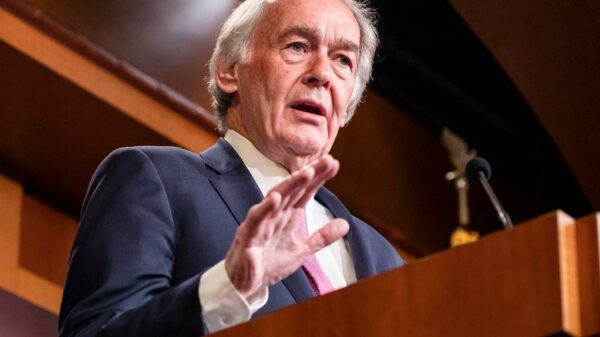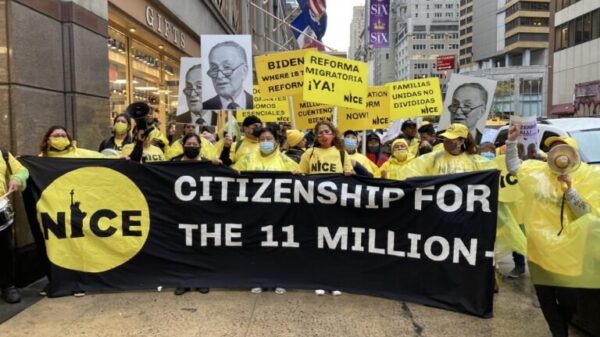SAN FRANCISCO — When President Trump signed an executive order to build a border wall, he unleashed a political crisis in Mexico.
With a stroke of the pen, the NAFTA nations — the U.S., Canada, and Mexico — went from being the “three amigos” to “frenemies.”
As recently as October 2016 Mexico’s ambassador was confident Donald Trump would not be elected president. “It’s not going to happen,” Miguel Basañez told me at the time.
But it did happen — and Mexico’s hope that it could work with Canada to present a united front against the Trump administration came undone when Canadian Prime Minister Justin Trudeau was informed that Trump would work out “a bilateral agreement” with Canada alone to salvage the mutual benefits both countries derived from NAFTA.
When Trump signed an order to put the Keystone pipeline back on track, Canada decided to forsake its commitment to Mexico. “We love our Mexican friends, but our interests come first,” a Canadian official told Reuters.
Canada, alone, is prepared to reach a bilateral agreement with the U.S., distancing itself from Mexico’s fate.
Now with Trump’s executive order to build the wall, it is clear that the unprecedented quarter century of cooperation and economic integration ushered in by NAFTA has come undone.
The economic development model that Mexico, the U.S., and Canada have pursued since 1994 — that the three North American nations have a common future — was repudiated during the U.S. presidential campaign. “Our jobs are fleeing the country, they are going to Mexico, and many other countries,” then-candidate Trump said in a debate against Hillary Clinton in September 2016.
Yet, as Mexico argued and CBS News, among other news agencies, confirmed, it is automation that accounts for the loss of the overwhelming majority of factory jobs. “Research shows that the automation of U.S. factories is a much bigger factor than foreign trade in the loss of factory jobs. A study at Ball State University’s Center for Business and Economic Research last year found that trade accounted for just 13 percent of America’s lost factory jobs. The vast majority of the lost jobs — 88 percent — were taken by robots and other homegrown factors that reduce factories’ need for human labor.”
Today’s executive order has no funds appropriated by Congress, and even if there were funding, it would take more than a decade to build. Yet the damage is already done — and not just in Mexico.
“Building a wall is an outrage, something that creates tension,” Vicente Fox, former Mexican president, said. “This is an act of aggression.”
The stakes are tremendously high — and not just for Mexico.
The uncertainty stands to ripple throughout corporate suites around the U.S. A wall will force corporate America to rethink how it produces things — eschewing business decisions for political calculations aimed to please the Trump administration.
When Ford canceled a $1.6 billion dollar small car plant in Mexico, it did so to ingratiate itself to the Trump White House, but not because it was a sound business decision. Now, thousands of multinational companies, which have spent two decades spreading production across the world, have to reconsider their strategy. To be sure, the 2011 earthquake and tsunami in Japan disrupted global auto parts supply chains, but Trump’s wall sends a signal that political disasters — not just natural ones — are creating uncertainty going forward.
“If your supply chain gets interrupted and your raw materials are coming from offshore, all of a sudden shelves are empty and you can’t sell product,” Thomas Caudle, president of the North Carolina-based textile company Unifi, told CBS News a week before the presidential election.
In Mexico, the outrage is palpable. Enrique Krause, Mexico’s leading intellectual, called Trump’s wall a “monument to a lie” and a “wall of infamy.”
The stunning turn of Mexico’s fortunes since Donald Trump was elected has been unprecedented. The Mexican peso has plunged in value, inflation has soared to record levels, billions of dollars in investments have been canceled, and the administration of Enrique Peña Nieto is floundering for a response.
The Mexican government’s paralysis — seen in its replacing its ambassador to Washington and Foreign Minister as a response to Trump’s victory — is a measure of how ill-prepared it was for a Trump victory.
“Trump’s ‘wall’ was seen as a metaphor, but now, what is one to think,” an official at Citibank commented, bewildered. “Doesn’t he get it?”
“Getting it” referred to the fact that more than five million jobs depend on trade with Mexico and more than a million dollars in trade crosses the border every minute.
“Last year, two-way trade with Mexico had risen to $584 million USD annually, an increase of 35 percent from 2010 and much higher than the rate of US trade with the rest of the world,” said Mark Early of Tecma University. “Approximately 57,000 U.S. companies – and the workers they employ – participate in, and rely on, that trade with Mexico.”
For Mexicans, Canada’s decision to consider NAFTA dead also stings. “The paradigm of mistreating the weak, threats, and persecution has returned,” writer and thinker Hector Aguilar said. But it is a measure taken against the law of gravity; it is an attempt to slow down the story. Integration is irreversible. Mexico is part of the United States and vice versa.”
President Nieto, under pressure, has just canceled his trip to DC. The wall, in a sense, has already been built.
Ronald Reagan dreamed of a common market from “the Yukon to the Yucatán.” Donald Trump has just killed that dream.










